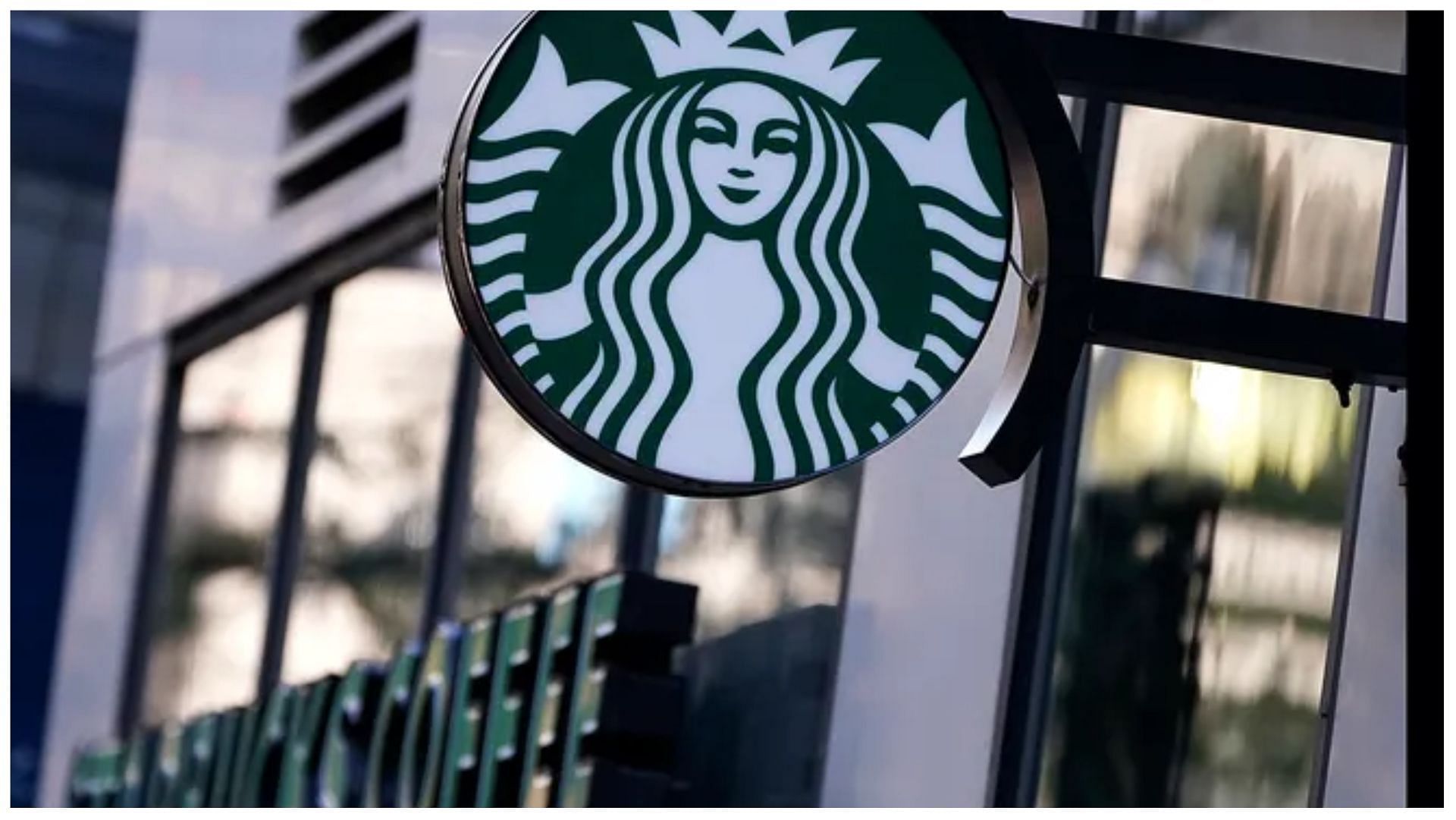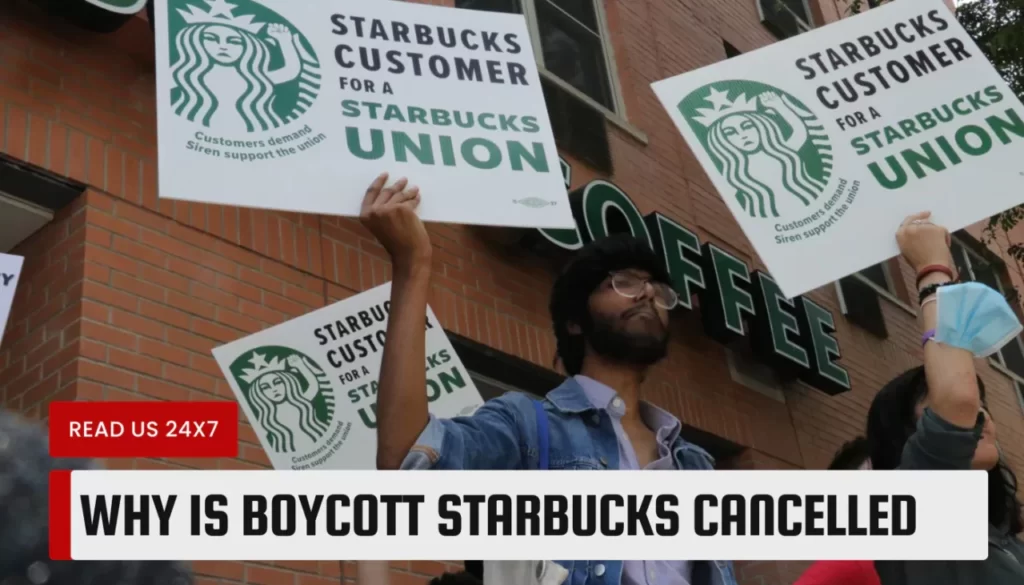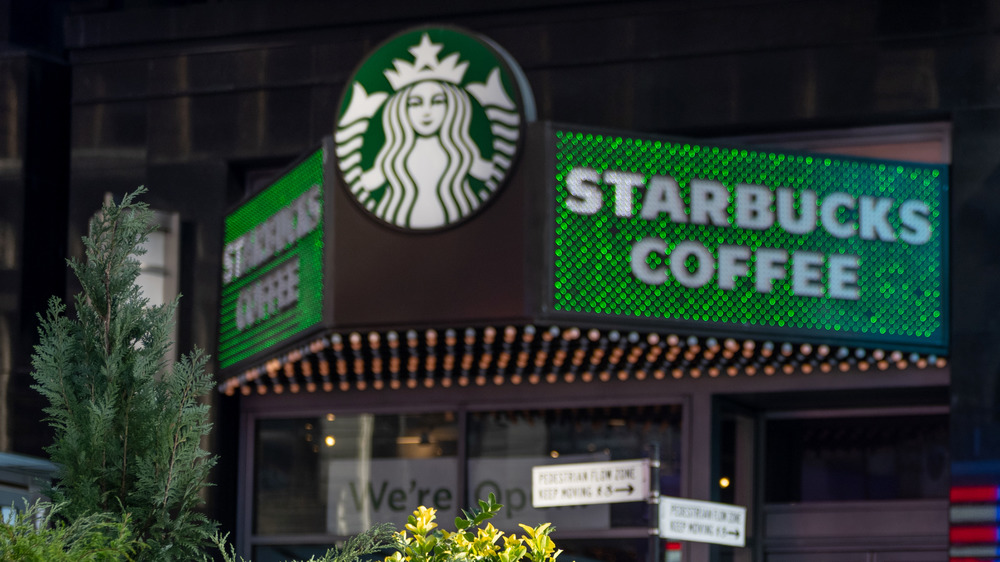Why Did Starbucks Get Cancelled? Unpacking Public Sentiment
It's a curious thing, is that, how even the biggest, most recognized brands can find themselves in the crosshairs of public disapproval. You see it happen all the time, it seems, where a company that was once just a part of the everyday suddenly faces a wave of criticism, or, in some respects, a kind of digital exile. People start asking, quite loudly, "Why?" And, honestly, when it comes to a name like Starbucks, a place many of us have visited, the question of "Why did Starbucks get cancelled?" really makes you stop and think.
Starbucks, a name known across the globe for its coffee and, well, its particular atmosphere, has grown into a massive presence. With thousands of locations and a truly vast customer base, it might seem, almost, impervious to the ebb and flow of public opinion. Yet, even a company of this size, with its deep roots in daily routines, can experience significant moments of public backlash. It's a reminder that even the most established brands are not beyond the reach of collective consumer sentiment, and sometimes, that sentiment can turn pretty sour.
This article aims to explore the various reasons, the whys and wherefores, if you will, behind the periods when Starbucks has faced calls for "cancellation" or widespread boycotts. We'll look at the specific events and broader trends that have, apparently, led to these moments of public reckoning. Understanding these situations gives us a bit of insight into how consumer values and expectations shape the reputation of even the largest companies, and why, thank you, these moments matter.
Table of Contents
- Understanding the Idea of 'Cancellation'
- Racial Bias Incidents and Public Outcry
- Labor Disputes and Unionization Efforts
- Pricing and Perceived Affordability
- Environmental Impact and Sustainability Pledges
- Political and Social Stances
- The Ongoing Dialogue
Understanding the Idea of 'Cancellation'
The term "cancellation," particularly in today's world, is that, a pretty fluid concept. It doesn't always mean a company shuts down, or even that everyone stops buying from them entirely. Rather, it usually refers to a significant period of public disapproval, a time when a brand faces widespread calls for boycotts, strong criticism on social media, and a general loss of public trust. It's about a collective decision, more or less, by a segment of the public to withdraw their support, or at least voice their displeasure, due to perceived wrongdoings or misalignments with their values. For Starbucks, these moments have typically involved a blend of specific incidents and broader, simmering frustrations that boil over into public view, you know.
Racial Bias Incidents and Public Outcry
One of the most prominent instances where Starbucks faced intense public scrutiny, and arguably its most significant "cancellation" wave, revolved around issues of racial bias. This was a moment that really forced the company to look inward and address some very deep-seated problems, as a matter of fact. It wasn't just a minor PR hiccup; it was a major event that sparked a nationwide conversation about bias in public spaces, and why, for what reason, these things happen.
The Philadelphia Arrests of 2018
In April 2018, two Black men were arrested at a Starbucks location in Philadelphia. They had been waiting for a business associate and, apparently, had not made a purchase yet. A store manager called the police because the men were sitting there without buying anything, and refused to leave. This incident, captured on video and widely shared, ignited a firestorm of outrage across the country, as you can imagine. People saw it as a clear example of racial profiling and discrimination, something that, quite frankly, left many feeling very upset and disappointed with the company.
The images and videos of the arrests spread like wildfire across social media platforms. People were asking, quite vocally, "Why?" Why were these men treated differently? Why was the police called so quickly? The public reaction was swift and incredibly strong. Many people felt that this incident was not just an isolated mistake by one employee, but rather a symptom of a larger, systemic issue within the company's policies and culture. It really hit a nerve with many consumers, you know, and sparked a widespread demand for accountability and change.
Starbucks' Response and Fallout
Starbucks' initial response was, frankly, a bit slow for some, but they did eventually take pretty significant steps. The company issued a public apology, and the CEO, Kevin Johnson, personally met with the two men who were arrested. Perhaps the most striking action taken was the decision to close over 8,000 company-owned stores across the United States for an afternoon of racial bias training for nearly 175,000 employees. This was a massive undertaking, a very public acknowledgment that they had a problem to address, and, frankly, a bold move that cost them millions in lost sales, but they felt it was necessary.
Despite these efforts, the incident left a lasting mark on Starbucks' public image. For many, it highlighted a perceived disconnect between the company's progressive branding and its actual practices. The "cancellation" calls were loud, with many people vowing to boycott the chain. While Starbucks has worked to rebuild trust since then, the Philadelphia incident remains a powerful example of how quickly public perception can shift when a brand is seen to fall short on fundamental values like equality and fairness. It's a stark reminder, truly, of the weight of public expectations, and why, for what purpose, companies must act responsibly.
Labor Disputes and Unionization Efforts
More recently, Starbucks has faced significant "cancellation" pressure stemming from its approach to labor relations, particularly in response to growing unionization efforts among its baristas. This is a topic that, you know, tends to generate a lot of strong feelings on both sides. Employees, especially in today's climate, are increasingly seeking better working conditions, higher pay, and more say in their jobs, and this has, naturally, put pressure on many large corporations, Starbucks included.
Employee Concerns and Organizing
Across the United States, Starbucks partners, as the company calls its employees, began organizing to form unions. Their stated reasons often included concerns about stagnant wages, insufficient benefits, inconsistent scheduling, and what they felt was a lack of respect from management. These concerns resonated with a wider public that, frankly, is increasingly sympathetic to workers' rights and the challenges faced by hourly employees. The idea that a large, profitable company might not be treating its frontline workers as well as it could, well, that's something that really rubs many people the wrong way, and why, for what cause, they might decide to support the workers instead of the company.
The movement gained significant traction, with a growing number of stores voting to unionize. This organizing effort was, in some respects, seen as a direct challenge to Starbucks' long-standing image as a progressive employer that, supposedly, took good care of its "partners." As these efforts grew, so too did the public's interest and, in many cases, their support for the unionizing workers. It's a situation that, basically, highlights the changing dynamics between corporations and their workforce, and how that plays out in the public eye, you know.
Allegations of Anti-Union Tactics
As the unionization movement gained steam, allegations of anti-union tactics by Starbucks management began to surface. These claims included accusations of firing union organizers, closing stores involved in union activities, and generally discouraging employees from joining unions. The National Labor Relations Board (NLRB) has, actually, filed numerous complaints against Starbucks regarding these alleged practices, and some courts have even ruled against the company in certain instances. This legal back-and-forth has kept the issue in the news and, frankly, fueled the "cancellation" calls from those who believe Starbucks is actively trying to suppress its employees' right to organize.
For many consumers, the perceived resistance to unionization directly conflicts with the image Starbucks has tried to cultivate as a socially responsible brand. People who value workers' rights and fair labor practices have, naturally, been particularly vocal in their criticism, leading to renewed calls for boycotts and a reevaluation of their loyalty to the brand. It's a very public battle, one that continues to unfold, and, honestly, it shows how deeply these kinds of labor issues can impact a company's standing with its customers, and why, for what reason, it becomes a point of contention.
Pricing and Perceived Affordability
Beyond specific incidents, Starbucks has also faced a more general, simmering discontent related to its pricing and the perceived affordability of its products. While not typically leading to a full-blown "cancellation" wave on its own, this issue certainly contributes to a broader sense of public frustration and can amplify other criticisms. Many people, frankly, view Starbucks as a luxury rather than an everyday necessity, and the cost of a daily coffee can, for some, seem quite high. This perception of being overpriced has, over time, become a talking point for many consumers.
In times of economic uncertainty or rising living costs, the price of a Starbucks drink can become a point of contention for many individuals. When people are feeling the pinch in their wallets, spending several dollars on a coffee might seem like an unnecessary expense, or even an indulgence they can no longer justify. This feeling can lead to a quiet kind of "cancellation," where people simply choose to frequent the chain less often, or opt for cheaper alternatives. It's a very practical reason why some people might drift away from the brand, and why, for what cause, they might look elsewhere for their daily caffeine fix.
Environmental Impact and Sustainability Pledges
Starbucks, like many large food and beverage companies, has faced criticism regarding its environmental footprint, particularly concerning single-use cups and waste. While the company has made public commitments to sustainability and has, for example, introduced reusable cup programs and pledged to reduce waste, these efforts have not always been enough to satisfy environmentally conscious consumers. Many people, quite frankly, feel that a company of Starbucks' size should be doing more, and doing it faster, to address its impact on the planet. This is a very important issue for a growing number of consumers, and it definitely plays a role in how they view the brand, you know.
The sheer volume of disposable cups used daily by Starbucks is, honestly, a visual reminder of its environmental challenge for many. Despite efforts to promote reusable options, the vast majority of transactions still involve single-use items. This creates a perception, for some, that the company's actions don't quite match its stated environmental goals. For those who prioritize ecological responsibility, this discrepancy can be a reason to reduce their patronage or even join calls for "cancellation," arguing that the company isn't living up to its promises, and why, for what reason, they should be held accountable.
Political and Social Stances
In today's highly polarized world, companies often find themselves in a difficult position regarding political and social issues. Starbucks, being such a visible and global brand, has, on occasion, either taken a stance or been perceived to take a stance, that has alienated certain segments of its customer base. Sometimes, it's about what the company says; other times, it's about what it doesn't say, or, perhaps, what actions it takes that are interpreted through a political lens. This can lead to boycotts from various groups, depending on the issue at hand, and why, for what cause, people might feel strongly one way or another.
For example, there have been instances where Starbucks' perceived support for certain social causes, or its business operations in particular regions, have led to calls for boycotts from groups with differing viewpoints. Conversely, some have criticized Starbucks for not being vocal enough on certain issues, or for not aligning strongly enough with what they consider to be important social justice movements. It's a tricky balance for any large corporation, trying to navigate the diverse values of its global customer base, and, frankly, it's almost impossible to please everyone. These situations, nevertheless, contribute to the ongoing public dialogue about the brand, and why, for what purpose, it remains a subject of discussion.
The Ongoing Dialogue
The question "Why did Starbucks get cancelled?" is, honestly, not about a single, definitive event that permanently erased the brand. Instead, it speaks to a series of moments and ongoing issues that have led to waves of public criticism and calls for boycotts. These instances, from racial bias concerns to labor disputes and environmental impact, highlight the ever-present scrutiny faced by large corporations in today's connected world. Consumers are increasingly aware of, and vocal about, the values they expect from the companies they support, and, as a matter of fact, they're willing to withdraw their business when those expectations aren't met.
Starbucks' journey through these "cancellation" waves is, you know, a pretty clear example of how brand reputation is constantly being shaped by public perception, corporate actions, and broader societal trends. It shows that even a globally recognized name must continually work to earn and maintain the trust of its customers. The dialogue around Starbucks, and other major brands, will undoubtedly continue, as consumers keep asking important questions about corporate responsibility and alignment with their own deeply held beliefs. To learn more about brand reputation on our site, and for related articles, you might want to check out our insights on consumer trends.
Frequently Asked Questions (FAQ)
Q: Has Starbucks been permanently "cancelled"?
A: No, Starbucks has not been permanently "cancelled." The term usually refers to periods of significant public backlash or boycotts, which the company has faced at various times. While these moments can impact sales and reputation, Starbucks continues to operate globally, though it definitely has had to work to address public concerns, as you can imagine.
Q: What was the biggest reason for Starbucks' "cancellation" calls?
A: Arguably, the racial bias incident in Philadelphia in 2018, where two Black men were arrested, sparked the most widespread and intense "cancellation" calls. This event led to significant public outcry and prompted a major company-wide response, including racial bias training for employees, you know.
Q: Are there current boycotts against Starbucks?
A: Yes, there are ongoing calls for boycotts against Starbucks from various groups, often related to current events, labor disputes, or perceived political stances. These calls tend to ebb and flow, but they are, frankly, a consistent part of the public conversation surrounding the brand, especially in today's very connected world.

Why is Starbucks closing in 16 locations? Locations explored as coffee

Starbucks Boycott 2024 What Happened - Shaun Katinka

The Real Reason Starbucks Just Canceled Its Happy Hour